UCMJ Article 119: Manslaughter
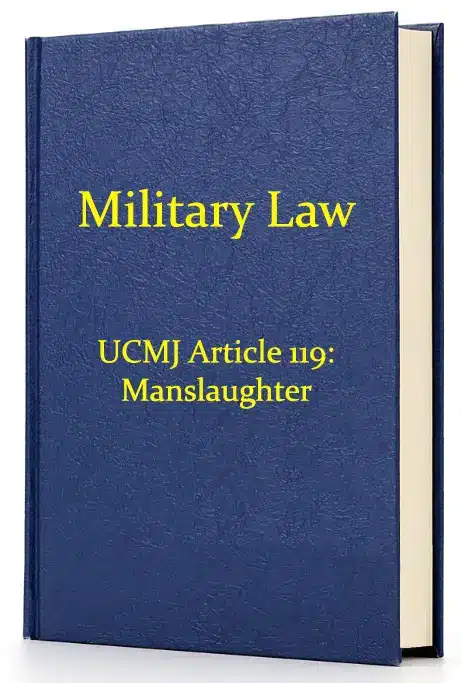
Voluntary manslaughter is an unlawful killing committed during the heat of sudden passion, with the intent to cause death or great bodily harm as a result of adequate provocation.
UCMJ Article 118: Murder
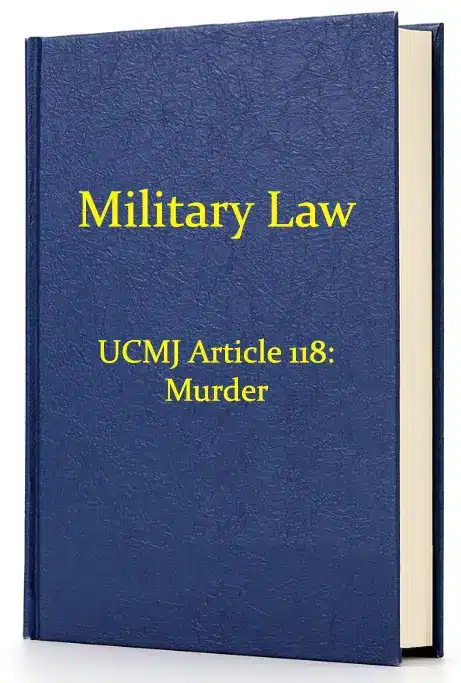
The killing of a human being without justification is unlawful. The circumstances surrounding the event determine if the killing is deemed to be murder or a lesser offense.
UCMJ Article 117: Provoking Speeches or Gestures
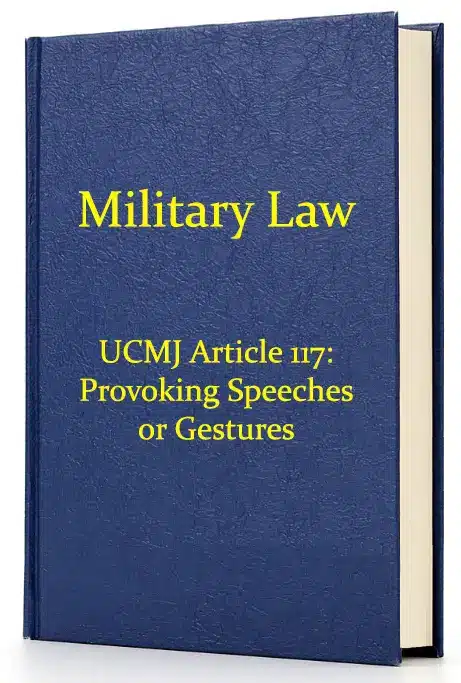
Provoking and reproachful describe words or gestures used in the presence of the person at whom they are directed, which a reasonable person would expect to induce a disturbance of the peace.
UCMJ Article 116: Riot or Breach of Peace
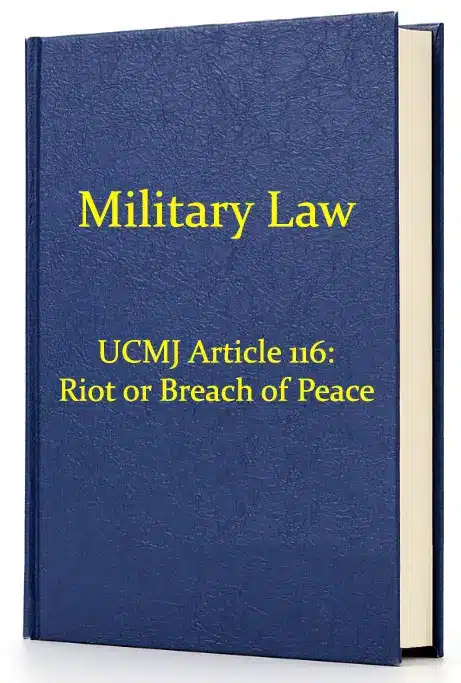
A riot is a tumultuous peace disturbance by three or more people assembled with a common purpose. The people assembled intend to execute a concerted action against anyone who might oppose them.
UCMJ Article 115: Communicating Threats
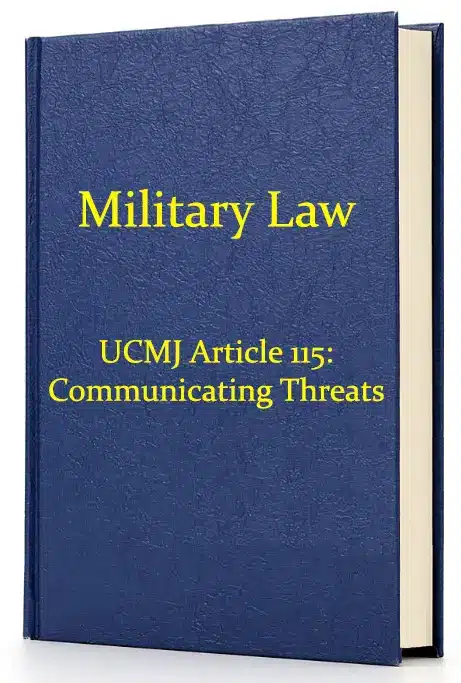
The term threat refers to an expressed and present determination or intent to kill, injure, or intimidate a person or to damage/destroy a specific property presently or in the future.
UCMJ Article 114: Endangerment Offenses
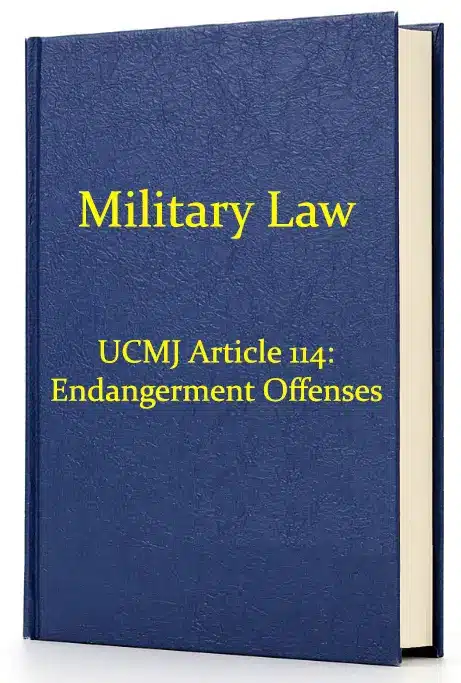
A service member is subject to prosecution if she engages in conduct that demonstrates reckless endangerment, dueling, firearm discharge, or carrying a concealed weapon.
UCMJ Article 113: Drunken or Reckless Operation of a Vehicle, Aircraft, or Vessel
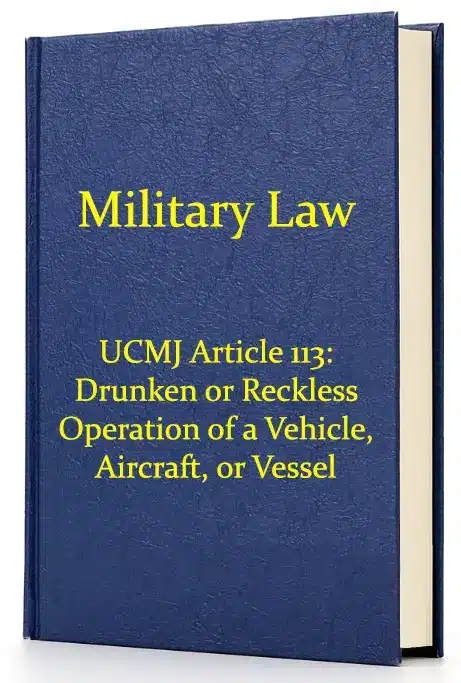
To establish causation, the accused’s drunken or reckless driving must be a proximate cause of injury for the accused to be guilty of drunk or reckless driving resulting in personal injury. Their actions may not be the sole cause of the injury but rather serve as a contributing factor.
UCMJ Article 112a: Wrongful Use, Possession, etc. of Controlled Substances
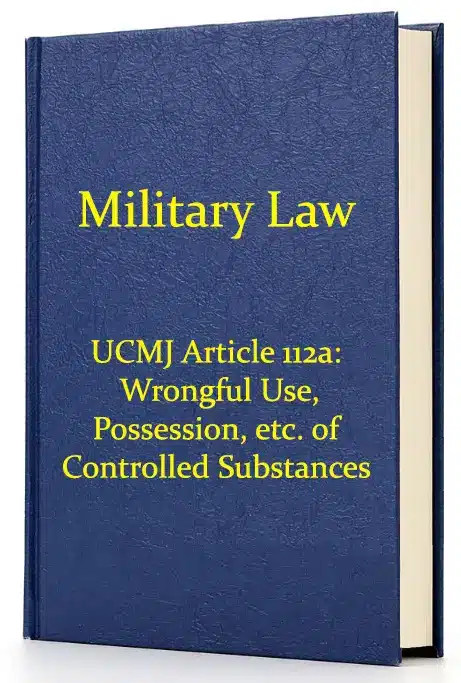
Drug offenses in the military are addressed under Article 112a of the UCMJ. According to the article, “Any person subject to this chapter who wrongfully uses, possesses, manufactures, distributes, imports into the customs territory of the United States…
UCMJ Article 112: Drunkenness and Other Incapacitation Offenses
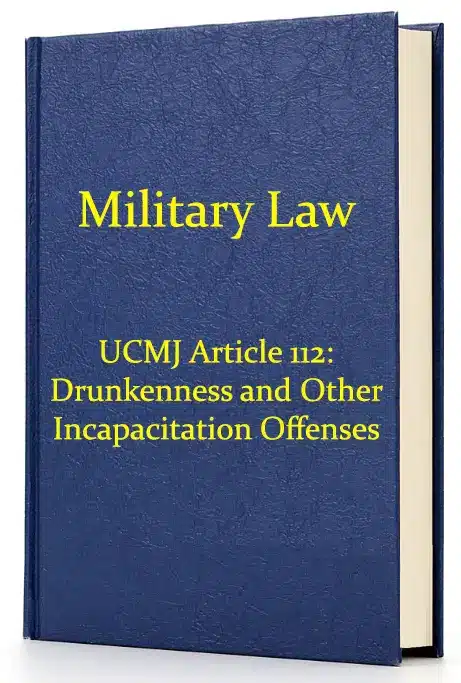
Drunk on duty refers to a state of alcohol intoxication that sufficiently impairs the service member from fulfilling their duties with rational and complete exercise of their mental or physical faculties. This charge applies only if the accused was on duty during the transgression.
UCMJ Article 111: Leaving Scene of Vehicle Accident

Article 111 covers “hit and run” situations where there is damage to property other than the driver’s vehicle or injury to someone other than the driver or a passenger in the driver’s vehicle. It also covers accidents caused by the accused, even if the accused’s vehicle does not contact other people, vehicles, or property. Actual knowledge of an accident is required; however, circumstantial evidence may be used to prove such knowledge.
